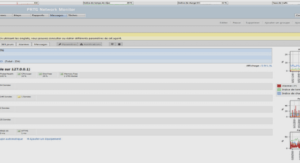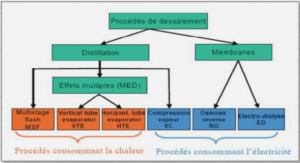Dehumanization in John Steinbeck’s Wrath (1939)
THE QUEST FOR PROFIT: BANKS AND LOBBIES
The analysis of the Protestant work ethic, the spirit of Capitalism, the belief in self – success and self improvement, reveals that, all these notions are advocated by the Calvinist ideas. In other words, the protestant belief is based on Holy Scriptures, but it contains many practical messages concerning money and labor, implicitly acknowledging the reality of money and its importance. For the Calvinists, worldly success is a sign of salvation from the grace of God. But on the contrary, being poor is a sign of damnation from the wrath of God as it is stressed: “Calvin and his followers taught a doctrine of double predestination, in which from the beginning God chose some people for salvation and others for damnation” 5 But of course, religious devotion is usually accompanied by a rejection of worldly affairs, ruthless competition to accumulate lot of money, sordid passion of greed, lust of power to dominate others by creating lobbies and holdings. Furthermore, the Quest of profit is also advocated by puritans, but for them, ethic and honesty should be prevailed over greedy and selfishness. In other words, the latter consider that money is good, only when its origin is licit and beneficial for others, that is to say, the spirit of sharing with the have-nots. However, money can be dangerous when it is a source of trouble. As Max Weber in the ethical writing of Benjamin Franklin concerning the Puritan ethic of work: Remember, that time is money…Remember that money is the prolific, generating nature. Money can beget money, and its offspring can beget more, and so on. Five 5 Weber, Max. The Protestant Ethic and The Spirit of Capitalism (Penguin Book, 2002), Translated by Peter Baehr 10 shillings turned is six, turned again is seven and threepence, and so on, till it becomes a hundred pounds. The more there is of it, the more it produces every turning, so that the profits rise quicker and quicker. He that kills a breeding sow destroys all her offspring to the thousandth generation. He that murder a crown destroys all that it might have produced, even scores of pounds. 6 Besides, this ideology of the protestant ethic on the American labor is clearer here, when the Reverend Russell H. Conwell, a Baptist preacher in Philadelphia, encourages his fellow Americans to acquire lot of money in order to be among the best citizens, in other words, to be one of the people elected by the Almighty God. For that reason, Reverend H Conwell has delivered his famous lecture more than six thousand times. Here is an extract of his speech: You have no right to be poor. It is your duty to be rich…you ought to make money. Money is power but it ought to be in the hands of good men. It would be in the hands of good men if we comply with the Scripture teachings, where God promises prosperity to the righteous men…It is a great ambition for men to have the desire to gain money, that they may use it for the benefit of their fellow men… but everyone of you can earn money honestly… 7 For instance, the title of the novel, The Jungle, symbolizes the competitive nature of Capitalism. The world of packing town in Chicago is synonymous with a Darwinian jungle in which the strongest dominates the weakest, in other words, in this environment only the strong will survive. The profit motive is the real cause of ruthless competition developed by big corporations such as Armour and Company known as Brown’s Slaughterhouse and Swift and Company known as Durham’s Fertilizer plant. These industries spread their influences and power in Chicago by controlling the job market. For that reason, they recruit unskilled and ignorant new immigrant workers who are ready to accept derisory wages, because, the latter have no choice to face hardships. The industrialists with the collaboration of banks succeed in imposing dehumanizing strategies in order to deepen the vulnerable immigrants into poverty. For instance, the close relationship between banks and businessmen, allows the latter to take profit of the advantages and privileges from the financing activities. Consequently, with the Banks’ proposals and instructions, the businessmen, in their turn, succeed in manipulating and cheating the poor workers.
VIOLATIONS OF THE WORKERS’ RIGHTS
It is worth analyzing, the question of the relationship between employers and employees in terms of human right and mutual respect concerning labor. As we can notice, in The Jungle and The Grapes of Wrath, the workers in the meatpacking industries and the farmers in the Californian valley are deprived of their rights respectively by the bosses of the Stockyards, the Associated farmers and its allies. Motivated by individual success and the pursuit of self-success, the Capitalists in general, use dishonest practices by seeking out callous methods to override their employees. In doing so, all means are good to take advantages of their positions to enrich themselves at the expense of workers. In The Jungle, Jurgis Rudkus unable to support his family is confronted with harsh difficulties in the Meatpacking industries in Chicago known as Brown’s Slaughterhouse. But also, he works in Durham’s Fertilizer mill where the conditions of working are unspeakable, for instance, the darkness of the place, the electric lights and the high level temperature precisely over one hundred degrees along with the chemical odor of the phosphate which soaks in through every pore of Jurgis’ skin, reveals, the danger and risk the latter and the workers in general, encounter daily in the working place. In other words, here, the workers have been denied of their rights of medical protection, but also, their rights of safe and healthy working conditions. As it is stated: Working in his shirt sleeves, and with the thermometer at over a hundred, the phosphates soaked in through every pore of Jurgis’ skin, and in five minutes he had a headache, and in fifteen was almost dazed. The blood was pounding in his brain like an engine’s throbbing; there was a frightful pain in the of his skull, and he could hardly control his hand… and half an hour later he began to vomit- he vomited until it seemed as if his inwards must be torn into shreds. (JGL, p.129) In The Grapes of Wrath, It is also important to point out, the blatant violation of the migrants’ civil rights which are protected and guaranteed by United States’ Constitution namely the denial of the Okies’ citizenship, the acts of xenophobia and the interdiction of free movement in some localities in the State. Consequently, it is declared in the fourteenth Amendment of the United States’ Constitution that: All person born or naturalized in the US and subject to the jurisdiction thereof, are citizens of the US and of the State wherein they reside. No State shall make or enforce any law which shall abridge the privileges or immunities of citizens of the United States; 14 nor shall any State deprive any person of life, liberty, or property without due process of law, nor deny any person within its jurisdiction the equal protection of the laws.8 As a matter of fact, in The Grapes of Wrath, these rights have been flouted by the deputies, cops, the board of health and the Californian folks. These newcomers are considered as foreigners, they are discriminated in all sectors namely in the fields, in schools and in the most important social activities. Worst, many prejudices are sent to them by the local populations who brand them with slanderous labels: Well, you and me got sense. Them goddamn Okies got no sense and no feeling. They ain’t human. A human being wouldn’t live like they do. A human being couldn’t stand it to be so dirty and miserable. They ain’t a hell of a lot better than gorillas. (GOW p. 301) On considering the importance of free movement of the population in the United States, it is true that, this right is essential for each American citizen to move from place to place at any moment in order to improve his living condition in the whole country without being disturbed. But, in The Grapes of Wrath, the migrant people are deprived of their right to move freely throughout the country. The reason is, to reduce their possibilities and advantages to access to available jobs in the south where the Government Camps are located. The example of the Weedpatch Camp, illustrates the collaboration between the deputies and accomplices who attempt conspiracies in order to infiltrate the camps and introduce sabotages among the migrants. Besides, the vigilantes refuse to let migrants to head to the south where opportunities and decent living conditions are available. However, they force job seekers to move to unknown places, especially in the north which are completely hostile to the migrants. But also most of them are huddled in dirty precarious camps without any support. This is noticeable when a group armed with picks handles and shotguns keep Tom from heading south. But finally, he succeeds in turning to the dirt road in the direction of the south. So, they threaten them: “Well, goddamn it, you’re goin’ the wrong way. We ain’t gonna have no goddamn Okies in this town…You turn right around an’ head north. An’ don’t come back till the cotton’s ready”. (GOW, p.382) .
DEDICATION |



